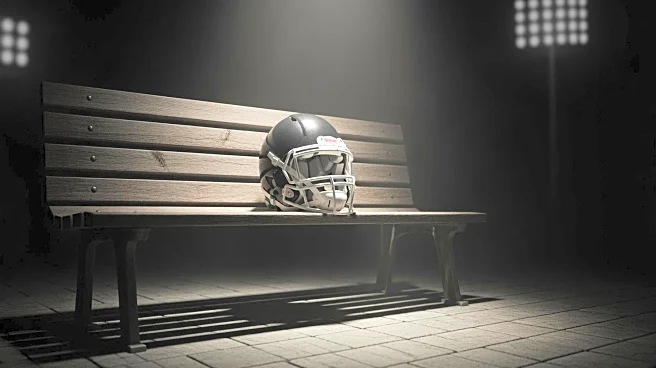What's Happening?
Myles Garrett, a defensive end for the Cleveland Browns, recently addressed the frustration expressed by fans regarding the team's performance. Garrett acknowledged that the season has been challenging
for both players and fans, emphasizing that the players are equally, if not more, frustrated due to their direct involvement in the games. This statement came after quarterback Joe Flacco's notable performance for the Cincinnati Bengals, which sparked criticism of the Browns' management and strategy. Garrett's comments highlighted the physical and emotional toll on players, contrasting it with the fans' long-term emotional investment in the team.
Why It's Important?
Garrett's remarks underscore the complex relationship between sports teams and their fan bases. While fans invest emotionally and financially in their teams, players endure physical demands and pressures to perform. This dynamic can lead to misunderstandings, as seen in the backlash Garrett faced. The situation reflects broader issues in sports discourse, where quick judgments often overshadow nuanced understanding. For the Browns, this highlights the need for improved communication and performance to align player and fan expectations, potentially impacting team morale and public perception.
What's Next?
The Browns will need to address both on-field performance and off-field communication to mend the relationship with their fan base. This may involve strategic changes, enhanced engagement with fans, and transparent communication from players and management. As the season progresses, the team's ability to improve performance and manage public relations will be crucial in maintaining fan support and achieving success.
Beyond the Headlines
Garrett's comments also touch on the broader cultural shift in sports discourse, where social media and instant communication have amplified fan voices and expectations. This environment can create pressure on players and teams to respond to criticism swiftly, often leading to misinterpretations. The Browns' situation exemplifies the need for thoughtful engagement and the potential for sports organizations to foster a more informed and supportive fan community.










